India's most celebrated trainer GM R.B. Ramesh turns 42 today!
GM Ramesh, one of the most celebrated coaches of Indian chess, turns 42 years old today. He has worked tremendously hard to build Chess Gurukul and currently is one of the best trainers in the world of chess thanks to his untiring efforts. He has helped the Indian team win its first team medal and has trained some of the finest talents in the world like Praggnanandhaa, Aravindh Chithambaram, Karthikeyan Murali, Divya Deshmukh and many others. Recently he published his first book - Logical Decision Making in Chess and Davide Nastasio reviews it and tells you why he thinks the book is a pure masterpiece!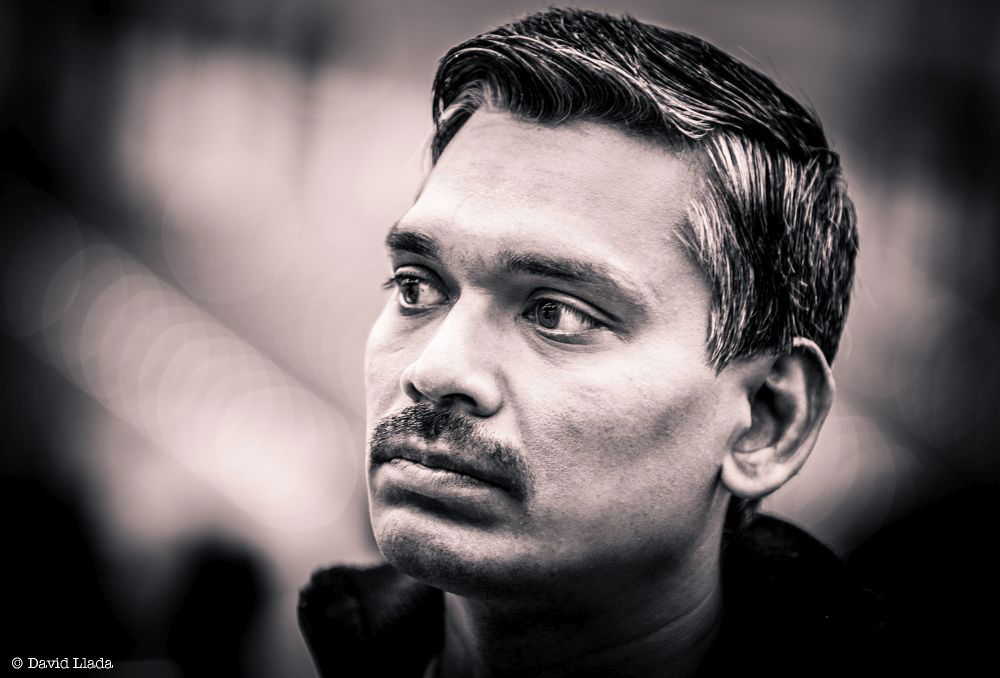
Ramesh is a coach from whom each and every student would like to learn. However, to get his personal time is not feasible since Ramesh not only has hundreds of students, but he also is the coach of the Indian national team. It came as a big boon for the entire chess community when Ramesh wrote his first book - Fundamental Chess: Logical Decision Making.
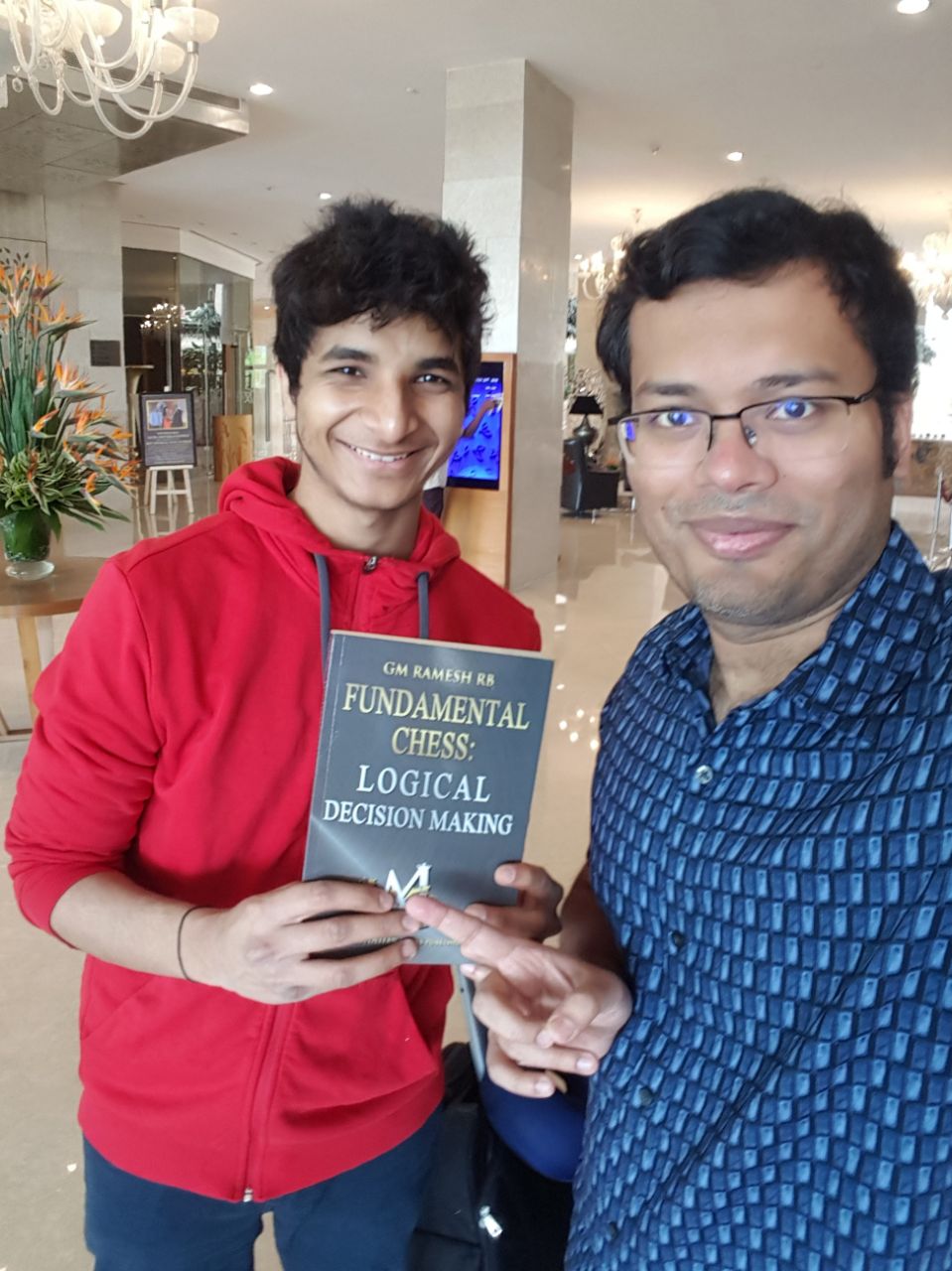
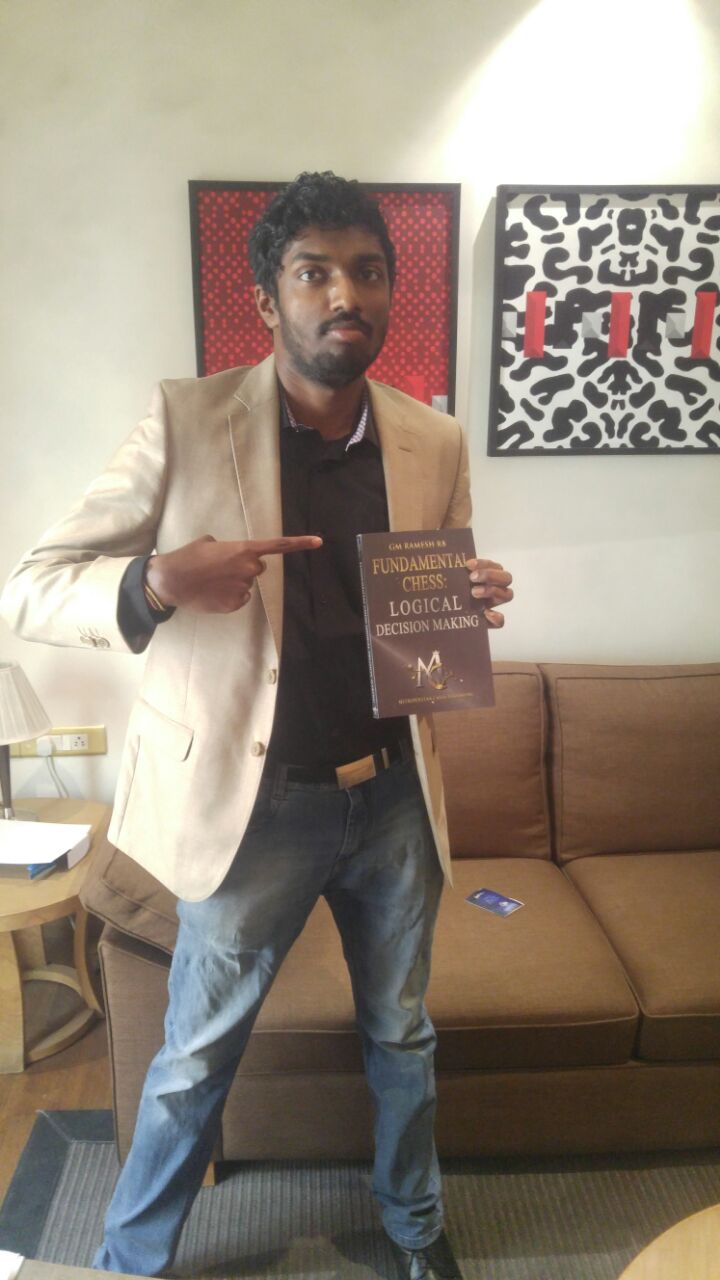

Following is the full Review by Davide Nastasio which was published on Georgiachessnews.com
Review: Fundamental Chess: Logical Decision Making – GM Ramesh RB
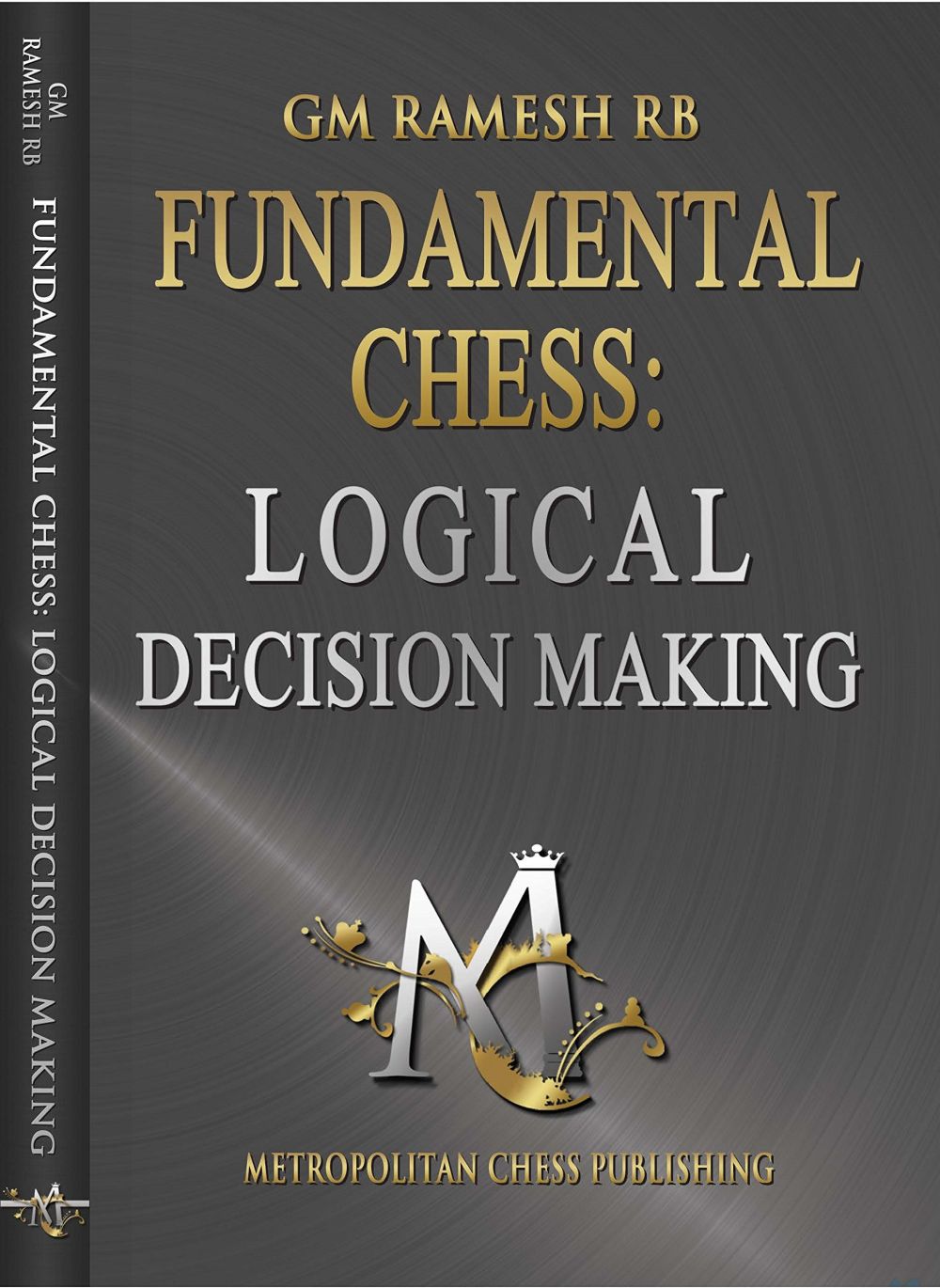
I was quite curious about this book, and I wanted to have a copy as soon as possible, in order to study it and use the information gained in all the tournaments I play during the year. Of course I need every possible weapon at my disposal for achieving success in chess!
It is no mystery that India is becoming a chess super-power, hence the need to learn from the best.
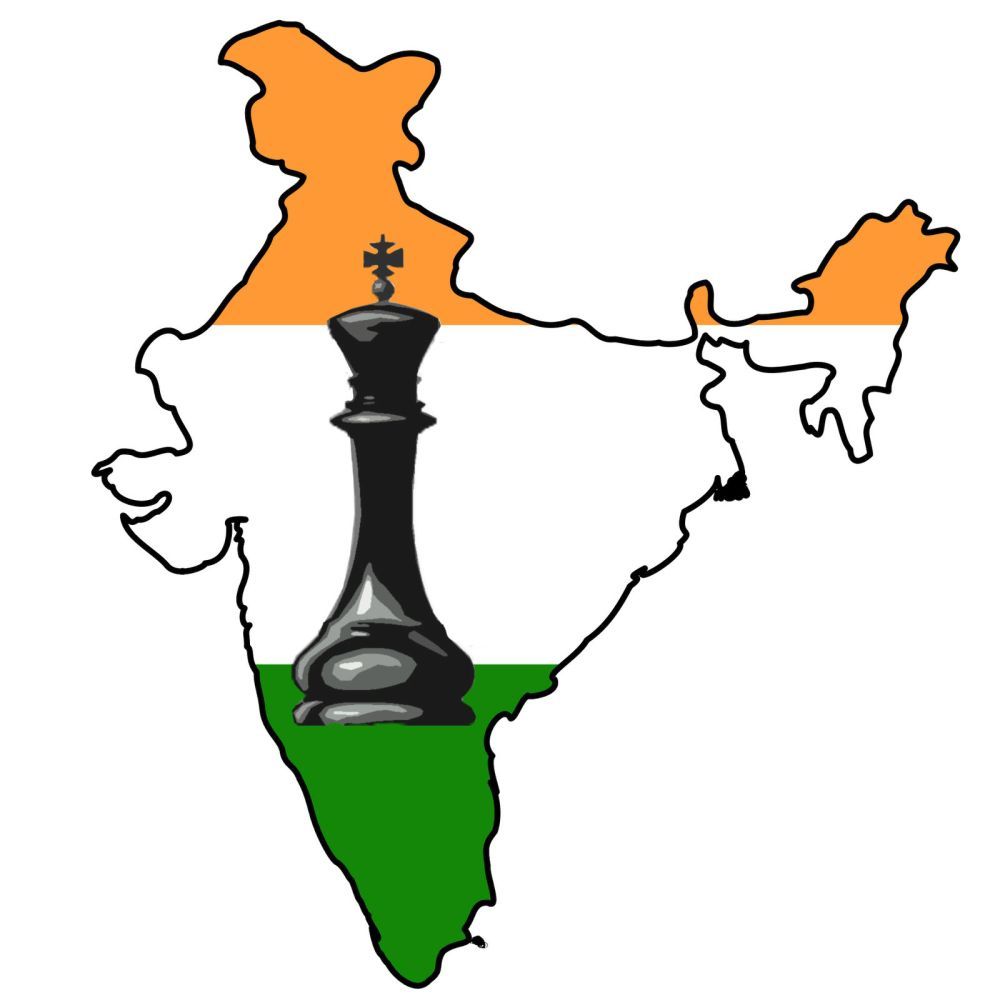
Russia has been a chess super power from the end of the second world war, because their communist regime gave special attention, and budget, to chess. Unfortunately in order to access their great chess literature, one had to wait for a translation or learn Russian. With India instead we can access their chess literature right away, because it is written in English, which is at the moment, for our western civilization, the lingua franca, like Latin was in the middle ages!
First of all, when I meet a new book, and a new author, I try to discover as much as I can about the author, to understand more about his chess career, and the context in which he lives or lived. Hence the question, who is R. B. Ramesh?
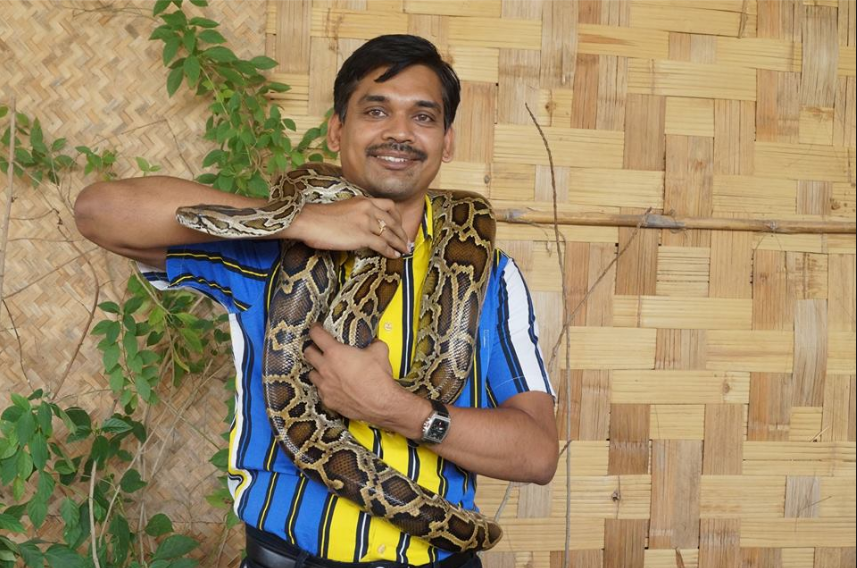
The answer is quite difficult and complex because we have in front of us an extraordinary human being! We could try to label him as the coach who brought India to the bronze in the 2014 Olympiad, but that is quite reductive! We could try to define him through some of his pupils, one who recently is under the spotlight is: R.Praggnanandhaa, that in 2016 became the youngest International master in chess history at the age of 10 years, 10 months and 19 days!
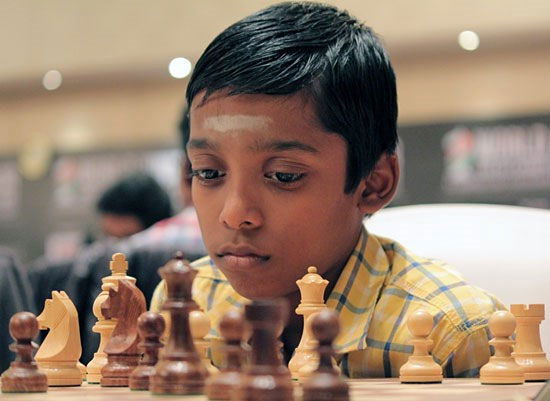
But also this tell us very little about the man... for example in 2002 Ramesh won the British Chess Championship, and the Commonwealth Championships in 2007.
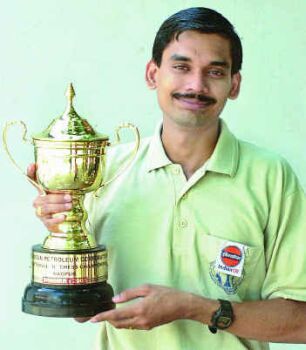
Commonwealth Champion,2007 | Image Courtesy: Ramesh's Facebook page
This begins to help us know that the man is a great chess player. Who has competed in the international arena, and brought home money and fame! Well then let some of his games speak, since they can tell us more than one thousand words over this intrepid fighter! I opened my Mega-Database 2017, and discovered 721 games played by Ramesh.
I've watched less than 100 games, played by Ramesh, and I must admit many give the feeling of a lightning in a clear sky. Watch the following diagram, Black just played 18...Be7; thinking of removing the Ng5, if you were Ramesh, what would you play?
Ramesh vs G.B. Joshi
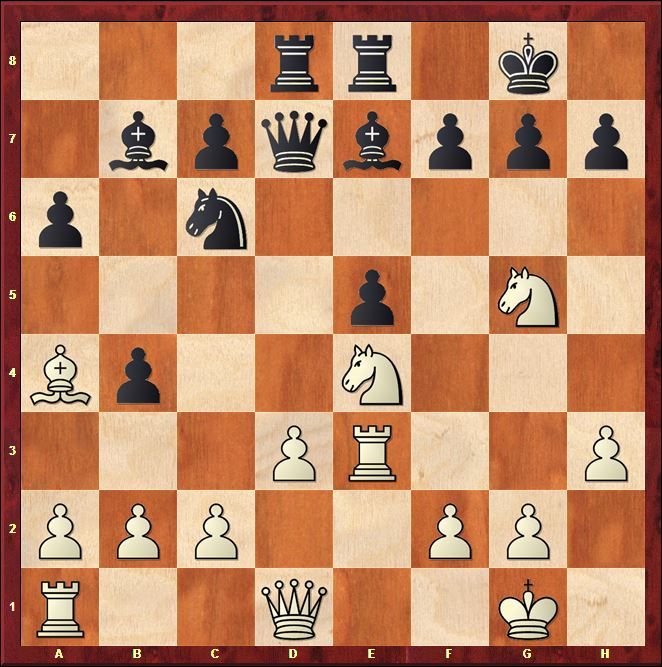
Black just played 18...Be7, What would you play as White?
Here's the entire game for those who want to know how it ended!
Obviously I'm not a biographer, and these few sentences about him, surely are not enough to describe such great teacher. However, this being a book review, I'm definitely satisfied I have in my hands a masterpiece written by a great teacher.
From the preface of the book we come to know that Ramesh belongs to both worlds, the one before the computers, when players actually used books, and relied on their own analyses for judging a position, and the new world, in which the Silicon engines create the novelties in the openings, and correct our misjudgments.
This book is special, because it reminds me of Kotov's trilogy, in fact the book is divided into three parts:
Part 1 - Logical reasoning
Part 2 - Practical Chess play
Part 3 - Fundamentals of chess training
GM Ramesh in the beginning of the book makes a very compelling case saying: "Logical reasoning has taken a back seat especially with young players who want to calculate by brute analysis." The young players are not completely wrong, because as model nowadays they have powerful chess engines which often defies chess principles and win performing miracles. But since we are humans not computers, the approach described by Ramesh at page 9 makes sense: "A good chess player makes use of concrete variations and logical reasoning to make decisions at the board."
But is this approach real? Are human beings capable of logical decisions supported by reason? This in my opinion is a very important point. And maybe can be contradictory even for Ramesh who writes at page 11: "There are more complex principles that are difficult to apply in our games. To go from knowing these principles to applying them in our games we need to make them a part of our thinking process and maintain a firm belief in them." And he continues with a beautiful example: "Sometimes it's a good idea to sacrifice a pawn in order to make our pieces more active. Knowing this principle and understanding the logic behind it is easy, but if we don't have a firm conviction in the principle, it is really difficult to give up a pawn just to activate the pieces."
So if we have to "maintain" a "belief" we are not using reason. After all I don't need to believe 2+2=4. I need to believe in something I cannot see, and I don't know if it works. For example, can I call a sacrifice of a piece a sacrifice if I know that if the opponent takes that piece I give checkmate? Evidently, it is not a sacrifice. A sacrifice should be giving material for attack, initiative, or something which is not giving me something more than my initial investment. If it does, what am I sacrificing for precisely? If I know that I invest 1 dollar I gain 10 dollars back I cannot say: I'm sacrificing 1 dollar. The point is: a computer will not sacrifice if it is not 100% clear the evaluation is better than before the sacrifice of the piece. A computer doesn't believe. A computer plays rational moves which are based on its programming. Instead humans often take risks which are not rational or proven to give back the desired result. In this sense it was famous Botvinnik’s phrase, which went like: “If Tal sacrifices a piece take it! If I sacrifice a piece, think long and well before to take it. If Petrosian sacrifices a piece, resign!”
But let's return to the book, Ramesh is clearly a great coach, a genius, and he dispels some myths I've read over and over in some commercial chess sites, mainly repeated by players who didn't reach GM level, and didn't coach a team to reach the first three places in a world competition!
At page 14, and just for this wisdom one should buy the book, Ramesh teaches how one should learn from watching top level games: "let us consider how we should study chess at home. I have noticed that most players, even at the level of IM tend to believe that seeing games will be sufficient in itself to improve their skill. Unfortunately this is not the case. When we study games, we become familiar with a few patterns related to those positions. But it's not necessarily improving our analytical and problem-solving skills, which are essential for strong players." and now he shares his wisdom: "When we watch top-level games, we should always guess the move first in our mind, taking anywhere from 30 seconds to five minutes for each move. If we feel the position requires more thought, we can study it with deeper analysis later." This particular piece of advice was followed religiously by a friend who has made master in just about 5 years, which is a good achievement, since most players never reach 2200 even in a lifetime of studying and playing.
As I wrote before, the book is made by three parts, and each part is made by different chapters. I found part three very important, after all many of us don’t have the money to pay a coach, and the topics treated in this part are very important for every tournament player. Some chapters are dedicated to: Studying the openings, Tournament Preparation, The importance of results and ratings. This last mentioned chapter opens with this quotation, which I found quite nice:
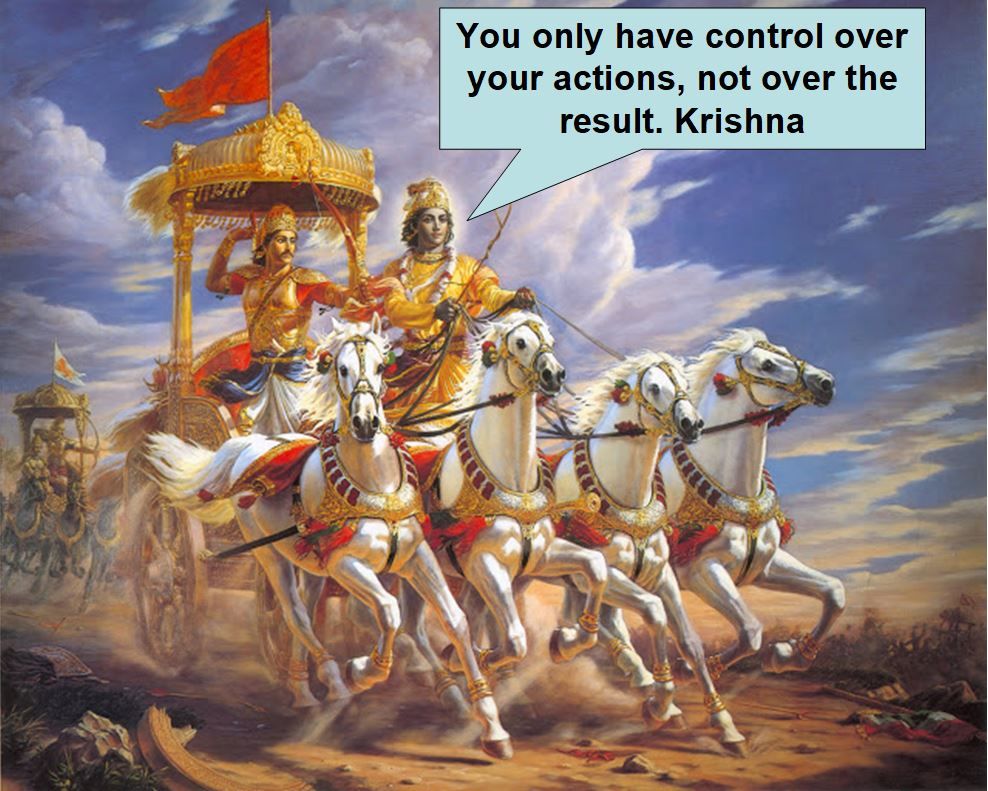
Bhagavad Gita Chapter 2, Verse 47
Another chapter is dedicated on Using computers. These are just few of the chapters in part Three, which stirred my interest (practically I read them more than one time) and are tremendously important for every player who is trying to improve.
Final thoughts: this is a book which is the condensed wisdom of an entire life spent on chess. This is not a book which can be read lightly in one session. It is clearly a book one could read 2-3 times at different points in his/her chess road to mastery, to acquire new ideas, or new understanding. In chess it is fundamental to have a coach. Unfortunately some players cannot afford one, or don't have enough time. This book can help in such direction. The positions and games chosen as example remind me of the one used in Dvoretsky's books. Games and positions which are full of meaning and often even trick engines, showing there is still a lot of growth potential for humans in chess!
The book is in my opinion addressed toward players rated 1900 and higher. The total beginner or players rated like 1500 surely can find some of the material interesting, but they should work more on other parts of the game, before reading this book. Often we ask ourselves if a book will make us masters. That cannot happen by the virtue of any book, and humankind definitely wrote some books full of wisdom. What the book can give us is the insight into another chess mind, someone who before us had the same problems and doubts we have today, and see how he tried to solve them. If this book will add something to our chess, then it is definitely good, if it doesn't then it is not. But this can happen only if we read it, work the positions, etc. Petrosian thought Nimzowitsch was wrong on many things, and he thought Nimzowitsch's books were full of mistakes, but he slept with those books. He literally kept them under his pillow! So try to sleep with this book, find the mistakes, the disagreements you have with the author, and see if it will help you become the next Petrosian!
I’d like to share one of the thoughts of the author, which totally resonates within the way I feel about chess, page 265: “For me chess is not just a game, it is a journey where the final destination is not known. It is a life long love affair. It enriches us along the way with its shares of ups and down, challenges and opportunities. Successes and failures in chess come when we least expect them. It takes us to the pinnacle of glory one day, and dumps us into the pits of gloom another. If we persist with hard work, flexibility, learning, and self-belief, it is the best journey of our life!”
I wish for you dear reader to have the best journey of your life, with the wisdom of this book, and with chess by your side!
Nurtr's dream room by R.B. Ramesh:
Check out the further combos of ChessBase with Nurtr

